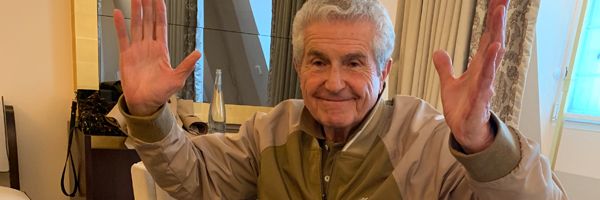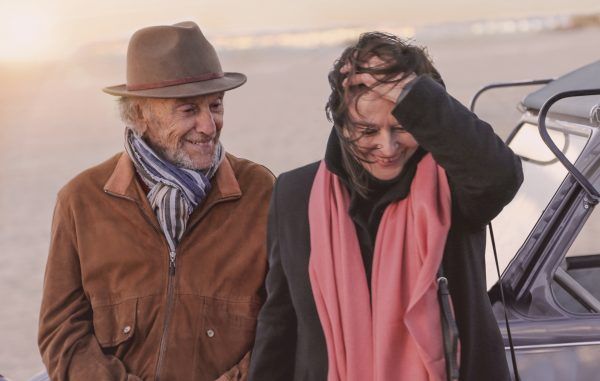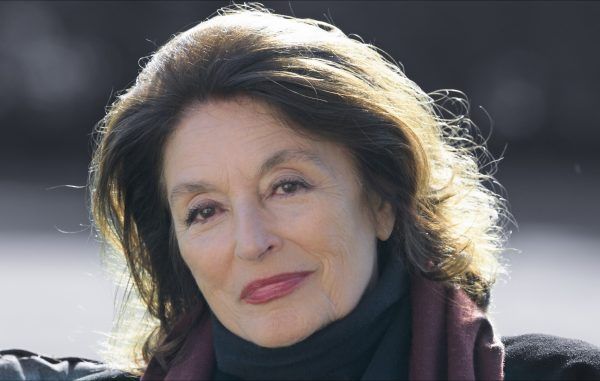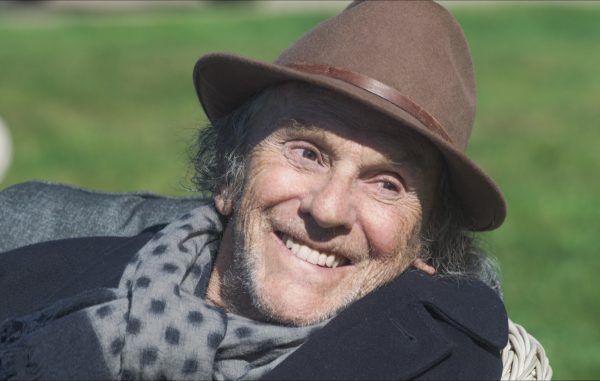Claude Lelouch’s The Best Years of a Life premiered out of competition in Cannes. The film follows up on Lelouch’s monumental 1966 film A Man and a Woman.
“Da da da da da, da da da da da” rang out in the main Cannes auditorium with a huge show of emotion from the crowd as they recalled the film’s famous anthem.
In 1966-67 Claude Lelouch’s A Man and a Woman was a phenomenon. After winning the 1966 Cannes Palme d’Or the hugely romantic, exquisitely shot film with Francis Lai’s killer song went on to win the best foreign film Oscar and Golden Globe. It also broke out in the main awards scoring Lelouch an Oscar for best original screenplay (together with co-writer Pierre Uytterhoeven), while Anouk Aimee scored a Best Actress Oscar nomination and won in the Golden Globe’s dramatic category.
The film, which follows a widow and widower who meet via their kids at a Normandy boarding school, made huge stars of Aimee and Jean-Louis Trintignant (Amour) while Lelouch could do whatever he wanted. Rejecting offers from Hollywood for films starring Marlon Brando and Steve McQueen, he instead stayed in France, where he is now a living legend after making 49 films. The 81 year-old lover of racing cars (Trintignant’s character was a racing car driver) remains remarkably youthful.
The Best Years of a Life tells a new story while using extensive footage of the original film. Trintignant is in a nursing home and cannot remember a great deal. Though he can remember the love of his life when she comes to visit.
Jean-Louis Trintingant, 88, seems much older than Anouk Aimee, 87, in the film, even if they are around the same age.
CLAUDE LELOUCH: It’s true that time has passed very differently for each of them. You can see death circling around Jean-Louis and that life is very large for Anouk. It’s that opposition I wanted to film. I wanted to make a film on life and I love, life with all its faults and all its contradictions.
It’s still a great love story.
CLAUDE LELOUCH I wanted to show that love is immortal. When you love someone it’s forever. If you don't love forever then you aren’t in love.
Trintignant and Aimee are great actors.
CLAUDE LELOUCH They’re very close to their characters. I like to cast actors who speak of things they know. Jean-Louis is someone who has suffered a lot in his life. He’s lost two children and he’s now nearly blind. He can’t walk any more but he has incredible courage.
A Man and a Woman changed your life and was considered revolutionary in France.
CLAUDE LELOUCH: It changed my life 53 years ago in Cannes and it changed the life of Anouk, Jean-Louis, Francis, all of us, and it changed the lives of the spectators too. I constructed the new film with memories and flashbacks so it would also be your story. We all have parents or grandparents of a certain age and I think all the people in the room can identify with the characters.
In 1986 you made a second film with the pair, A Man and a Woman: 20 Years Later and the reaction was not positive.
CLAUDE LELOUCH: It was too early. I made an error. They hadn’t changed. The thing that was needed was time.
After the first film you had offers from Hollywood to work with McQueen and Brando.
CLAUDE LELOUCH: Yes that's right.
You said no. Why?
CLAUDE LELOUCH: Because I didn't want to be a slave to the producers. I always thought directors were more important than producers but in Hollywood the producer is more important. Of course in America there are auteurs who have made great films, like Woody Allen and John Cassavetes, and great directors like Coppola and Scorsese have managed to work within the constraints of the studios. I would have been thrilled to make films with Marlon Brando and Steve McQueen if I could make what I wanted to make. But they wanted final cut. I was once asked to make a James Bond film and I would have loved for a woman to break James Bond’s heart. I would have liked it if he resembled a man and not a superhero.
You film in continuity and you film fast.
CLAUDE LELOUCH: Yes. I shot this film in 10 days and the original film took 13 days. I don't like giving the script to the actors or rehearsing. You have to have confidence in each other. I like that they discover as we go along. Jean-Louis knew that from the beginning and really inhabited this role. Actors shouldn’t work too much on a text. The cinema is not theatre. In cinema you see people’s eyes and their eyes miss nothing. You see joy, there’s a curiosity and that’s what I’ve tried to film all my life.
I’ve always regarded myself as an amateur, because I believe the work of filmmakers is too wonderful to be regarded as job. I’ve always tried out new things, which is why I recently shot a film with my cell phone. It will be finished at the end of the year.
Since you made the 1976 eight-minute short, It Was a Date you’re known as a racing car driver who would drive faster than a train to see a woman through the streets of Paris.
CLAUDE LELOUCH: I have one fault in that I hate being late. It shows people you are happy to see them if you arrive on time. It’s true that I took a big risk to be on time and this is what this film is. It’s the film of mine that has been most seen everywhere in the world through the internet and it’s also the film I’m most proud of--and also most ashamed of. I did everything you shouldn't do when driving a car. I took the maximum risk, risking my own life and the lives of other people. At the same time I have to confess that I love speed and I don't like things to be forbidden. So one morning I took my car and drove very fast for 10 minutes and I filmed those 10 minutes. I think the film is a perfect metaphor to show what a man can be proud and ashamed of, to have proof of what a man can recognise as a fault.




